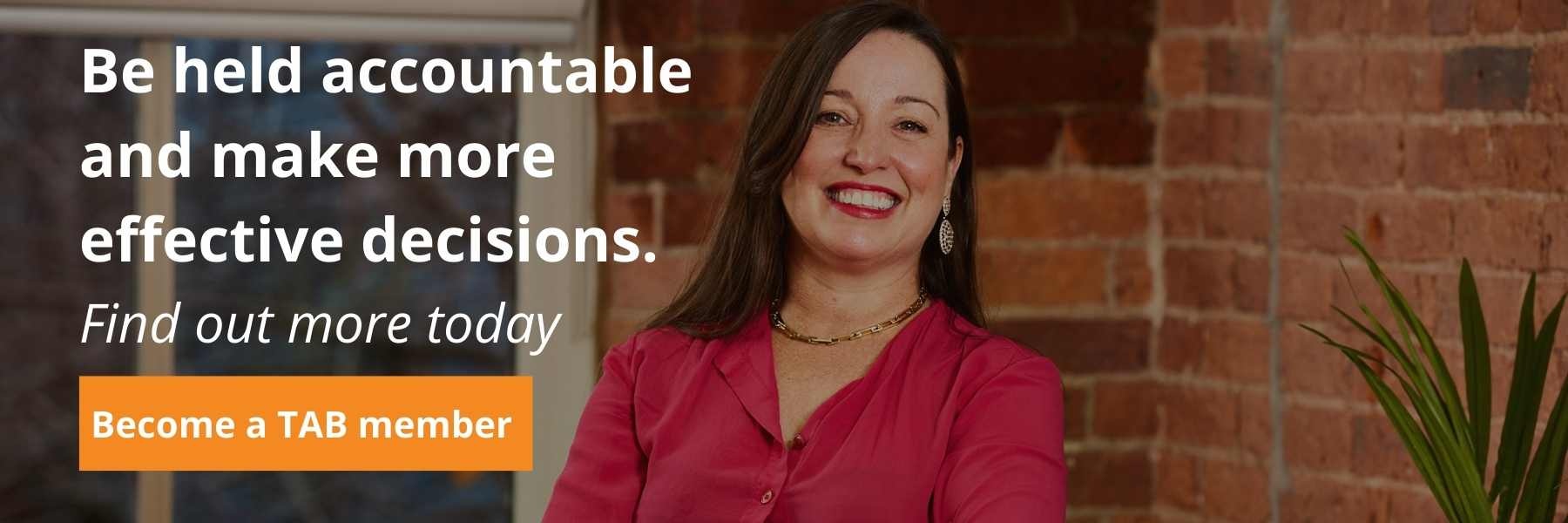
The ultimate guide to exit planning for business owners
by The Alternative Board (UK)
It’s never too early to think about ‘exit planning.’
You may have just started your business, or you’re ten years in, but you should have an idea of how you want to exit in the future. As a business owner, one of the main goals is for you to add value to your business so you can get the best price and terms for your sale.
So, how do you even begin to think about an exit strategy? To help, we've put together an ultimate guide to exit planning.
Know what you want and why

It is important as a business owner to consider and articulate the passion you have for your business and the impact that selling it one day might have on your personal happiness. Many owners have found that leaving their businesses behind means they eliminate one of the most fulfilling aspects of their lives. So, know what you want and consider the options you have available.
Here are the different options for exiting your business:
- Sell it to a ‘stranger’ (eg a trade sale or an incoming management team)
- Sell it to family
- Sell it to the existing management team (MBO and succession planning)
- Keep it but let others do the work
Sometimes the purchaser (whether that is a stranger, family member, or colleague) will require you to stay in the business for a period following the sale. Are you happy with that? It might be hard for you to work in your business where you’re no longer the boss so it is important that you think about what you want and what you’d be comfortable with when exiting.
Preparing the business, and yourself for the sale
‘Do you know what your business is worth?’
This is a key question to answer when preparing for sale. One to which lots of people will have an opinion. And in certain sectors, there will be a typical methodology that is followed. E.g. a multiple of revenue, or of recurring revenue, or profitability (EBITDA – Earnings before Interest Tax Depreciation & Amortisation).
Even then, you’ve got to make your business as attractive as possible to prospective purchaser(s). Different types of transaction take different lengths of time, have different costs associated with them, and offer different ways for the seller to realise their value e.g most sellers want to receive all their money in cash on day 1; most purchasers want to pay as little as possible up front and pay the balance only when performance milestones are achieved
Valuebuilder is a tool to assess (and help owners to identify) how valuable and saleable a business currently is across a range of measures – and provides recommendations as to how to improve the value and saleability. Here at TAB, we help business owners with all of that through our advisory services.
A suitable succession plan
If you want to leave the business in good hands, you will need a suitable succession plan in place to make sure your team are as capable as possible to run the business without you.
Are you still doing too much? Or are you the business? Where is the value to a new owner in that?
Give the team the training, opportunity, and authority to take on more of the things that you do.
Reduce your activity and the reliance on you once the team is adequately resourced to take on more delegated responsibility.
But be warned, all of this takes time. Read this guide on succession planning for more information.
You need to have a plan, and it’s important that you assign a timeline to it. Additionally, if you’re a partnership or equal equity business, you need to ensure that all parties involved agree with the plan. Also, make sure to consider tax efficient management incentive schemes to help motivate management towards reaching your target value of your business. Private equity might also be a route to accelerate the growth of your business to allow your eventual exit.
You need to ideally allow c5 years from the beginning of the process to the transaction – don’t under-estimate the work involved for you to achieve the exit you want on the terms you want.
The transaction
Here are some tips if you are selling to an external party. It is really important that you understand their motivations for buying your business, therefore whilst they will do due diligence on your business, it’s equally important that you perform due diligence on them.
Find out why they want to buy the business, what do they know about the industry, have they bought any other businesses previously, what are the strengths and weaknesses of their existing business, are they going to run the business or re-sell it, what is the plan for the existing team members, how will it be financed?
Here's a non-exhaustive list of questions to ask:
- What is the reason or what are the reasons why you wish to buy my business?
- What experience do you have in this industry?
- What experience do you have in purchasing businesses?
- Do you plan to run the business or will you bring a team in?
- Do you intend on reselling it?
- What are the strengths/weaknesses of the existing business (if merging with an existing business)?
- What timeframe are you working to?
- Will you keep the name of the business?
- Will you sign a confidentiality or NDA?
- Who will be running the business if you buy it? What are their qualifications?
- What is your due diligence process to purchase a business?
- How are you financing the purchase?
- Can you provide evidence that you have the funds needed to buy my business?
- What are your plans for the business?
- What is the plan for the existing staff?
For guides on selling to family, succession plans and semi or complete retirement, download our e-chapter on exit strategies.
How to prepare for post-exit life
Here are some key considerations when it comes to post-exit life. Some of them might affect how you decide to sell the business.
- Emotionally i.e. There may be a sense of bereavement which may impact the individual and shouldn’t be overlooked. You as the business owner need to prepare for this possibility
- Practically e.g. Financially and living arrangements - how much money do you need for the rest of your life? Any big purchases or bucket-list plans which need resource?
- Relationally e.g. Staying in touch with old colleagues (if desired) but in a modified way, avoiding loneliness avoiding withdrawal
- Occupationally e.g. Finding new hobbies and things to do with the time, avoiding boredom, ensuring a sense of achievement for those who value it - could be especially true for successful business owners who are used to being successful
- Physically e.g. Keeping fit and well in body mind and spirit
Related articles

Planning Your Business Exit: How to Prepare for the Future You Want
Plan a stronger business exit with expert insights on valuation, leadership readiness and personal transition. Learn how to build an exit ready company with TAB.






